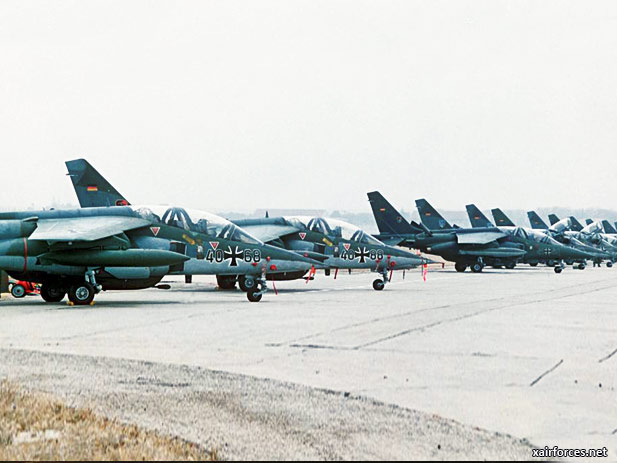
NATO under pressure as allies cut defense costs

As defense budgets are slashed in dire financial times, governments increasingly rely on alliances and cooperation with their partners. Instead of going solo, militaries pool resources to increase efficiency.
The financial crisis has put pressure on governments all over the world to drastically cut down expenses. What started five years ago now has started to affect defense budgets. Germany wants to save some 8 billion euros ($10.4 billion) by 2015 by slashing its military budget - and other countries in Europe and within the North Atlantic Treaty Organization (NATO) see hefty cuts coming their way as well.
Security policymakers and experts now hope to increase efficiency - countries should join forces instead of separately carrying out tasks. Defense policy guidelines published by German Defense Minister Thomas de Maiziere in 2011 stated that if security preparedness had to be handled with narrow means, this calls for a more efficient adjustment of the alliances. In 2012, NATO started its "Smart Defense" project - the EU's Common Foreign and Security Policy (CFSP) calls for the same thing naming it "pooling and "sharing."
Pressure in Europe is on "We are just at the start of developments," said Lt. Col. Michael Angerer, a German Defense Ministry official responsible for keeping in touch with international partners in Brussels. "Everyone used to contribute to the alliance as much as they could; and basically was able to plan on their own." Now, partners are supposed to decide what they want to specialize in - and which skills and tasks they want to leave to others.
Pressure on Europe increases even more: Europeans will have to take care of their own defense even more in the future as the US continues to direct more of its attention to the Pacific Rim.
There are 25 Smart Defense projects that have been implemented by NATO partners so far, but with mixed feelings. "Not everyone has grown accustomed to the idea of giving up certain skills," Angerer said.
But there are some positive examples for "smart" cooperation. The Dutch army has suspended its combat tanks, and trains its personnel in Germany instead. Balkan states use international structures to secure their airspace. Airplanes under German Navy command are being pooled (Maritime Patrol Aircraft), and European strategic air transport is organized via the European Air Transport Command (EATC). During the Mali mission, EATC for instance refueled French Air Force jets.
Management structures are also targeted to become more efficient: National headquarters should serve partners as well. Germany's Joint Headquarter in Ulm contributes significantly to the alliance's needs, said Angerer. If needed, EU and NATO forces can use the facilities as well.
Growing dependency
Despite these pooling measures, Germany doesn't really save a lot of money at the moment, because it continues to have the full skill set needed at its disposal. Cutting down expenses doesn't really fit the German idea of NATO and CFSP.
"From a German point of view, alliances exist in order to ensure legitimacy and efficiency," security expert Christian Mölling from the Berlin-based German Institute for International and Security Affairs (SWP) said. "But the thought that defense could be cheaper was of secondary importance."
Instead of strategic visions, security policy has increasingly become dominated by financial restrictions, Mölling added. He is very skeptical of this change towards this more economic approach to defense.
And yet another thing has changed: What used to be autonomous military forces are now interlocked systems. No NATO country can currently carry out military operations without asking partners for help.
"The time for unilateralist approaches is over," Mölling said. Instead, the alliance has entered a new phase of integration. Recent operations in Libya and Mali showed how much even France and the UK depend on their partners now.
But if one country pushes for a military intervention, it means the others are in as well. That's something that constantly leads to confusion in Germany, Mölling said.
"Such an alliance is also a system of intervention," he said. "And huge parts of the [German] public have a problem with that."
Source: Deutsche Welle News – 6 April 2013
Photo: The NATO Air Force AlphaJet Attack Aircraft (Photo by picture-aliance/dpa)
(6.04.2013)
|